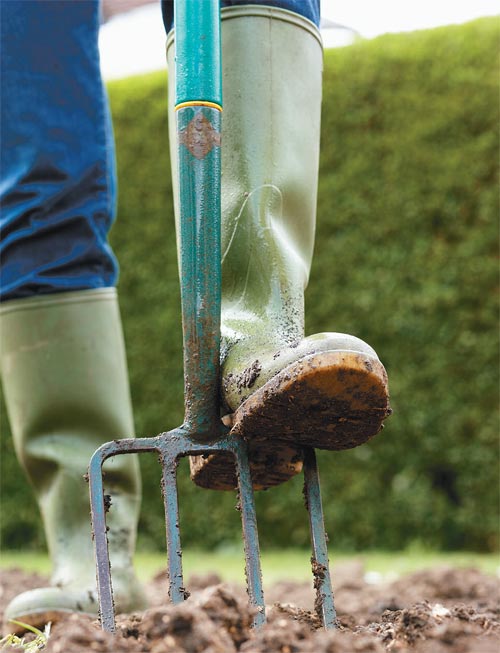Urban gardener: The plot thickens

So I'm lying there, right, and my osteopath says to me, "What's the best way of clearing a new allotment ... you know, one that has been neglected for several years with waist-high grass and weeds?" It turns out that the so-called "new" allotment was actually acquired a year ago but is yet to be tamed.
To be honest, the thought of having to start all over again gives me the shivers so I always tell people not to be too ambitious in their first year. Growing one or two crops well is better than the frustration and disappointment of trying to grow everything and getting relatively little in return, as we found in our first year. Also, get it into your head, right from the start, that this is not a money-saving exercise. You may spend less money on buying vegetables from the shops, but the amount of time you spend in tillage, watering and protecting your crop means that, even on the minimum wage if you work it all out on an hourly rate, you'll be down. Think of it as a lifestyle in which exercise, fresh air and organic food, not to mention a more intimate dalliance with nature and the local community, provide a much more holistic approach to gardening.
If digging is not your bag then think about covering the area with black landscape fabric to suppress weeds. It's not the most aesthetically pleasing material, but neither is carpet for that matter and the latter is a better haven for slugs. Potatoes, squash, beans and corn are good starter crops to open up the soil. They can be planted through holes in the cover or, planted straight into the ground, they can even be an effective weed-suppressant on their own.
Rotovating might be an option if you have access to a machine, provided there are no pernicious weeds such as couch grass, convolvulus or ground elder which can reproduce from the smallest piece of root left in the ground. If you have just one of these difficult weeds, it's not necessarily game over, but there really isn't any alternative to digging and hand-weeding even if you plan to adopt a no-dig method after the initial clearance. We have both convolvulus and couch grass in various states of occupation on our plot and have given up trying to conquer them because there just isn't the time. A state of calm exists by digging it out when we see it in the main beds and appreciating the beautiful flowers of the bindweed if they get a hold in an awkward spot for us to deal with. Weeding little and often is much better than leaving weeds to mature before tackling them. Even bindweed needs its leaves to produce chlorophyll to survive so pulling it up religiously will, in time, kill it.
Anyway you can't beat the initial dig and subsequent hand-weeding for connecting with the soil. You'll quickly get to know the numerous states in which your soil exists. Its character and integrity shifts and changes almost daily and you'll get to know the best time to dig, sow or leave well alone just by touch.
What to do with the roots of these weeds is always a dilemma and I often see people carting barrowloads of the stuff to rubbish containers, which is a waste if you really think about it. Japanese knotweed aside (which is illegal to dump and, like any self-respecting zombie, doesn't know when it's dead and needs a good hot fire to kill it), weeds can be composted if you have the space to spread them over the ground to dry and die. Again, remember the zombie simile and make sure they are really dead before adding them to the compost heap. Biodynamic gardeners even make liquid manure from their weed roots and shoots that not only help return nutrients to the soil, but in some cases can act as a weed suppressor. I've never tried this so I can't vouch for it, but I'm game for anything and will let you know the results of a bindweed brew as and when it happens.
Subscribe to Independent Premium to bookmark this article
Want to bookmark your favourite articles and stories to read or reference later? Start your Independent Premium subscription today.

Join our commenting forum
Join thought-provoking conversations, follow other Independent readers and see their replies